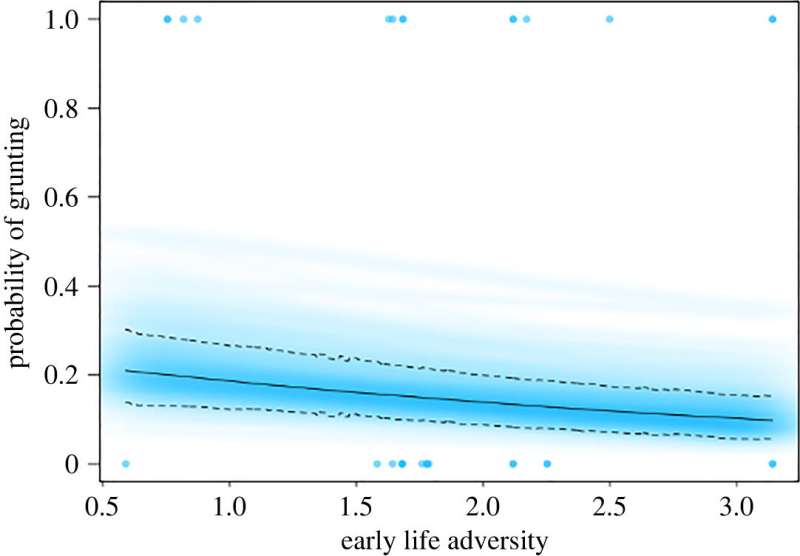February 3, 2022 report
Early life adversity leads to more socially awkward adult female baboons

A small team of researchers from New York University, the University of California and Arizona State University has found that female baboons who experience early life adversity are more likely to be socially awkward later in life. In their paper published in Proceedings of the Royal Society B, the group describes their analysis of data from research done by others over five decades and what they learned about the impact of early life adversity on social skills later on in life.
Prior research has suggested that children who experience adversity during their formative years tend to have more trouble adapting to adult life than those brought up in a more secure environment. In this new effort, the researchers wondered about the specific impacts on young people who go through hard times when growing up. They looked at data describing the behavior of wild female olive baboons living in Kenya over a 50-year time scale. The baboons, it has been noted, are extremely social creatures.
The researchers looked for young females that had lost a mother when young, or who had undergone some other hardship, such as periods of hunger or who were born to mothers with poor parenting skills or who were ill while raising their offspring. They then followed up on those same baboons as they grew to be adults to learn more about how they had fared.
The researchers found a pattern—those females who had undergone adversity as youngsters had more difficulty fitting in with other females in their group. They appeared awkward and as a result had fewer interactions. They also found that most of them lacked an important social skill—grunting in a certain way when approaching another female baboon. Prior research has shown that greeting grunts are used by the baboons to those they are approaching to signal that they hold no ill will toward them. Failure to grunt puts those being approached on guard, which leads to a less receptive posture. And that leads to less attention and grooming.
The researchers suggest that the females undergoing adversity as youngsters may miss out on lessons that other youngsters get, such as how to approach and behave with others.
More information: Sam K. Patterson et al, Early life adversity has long-term effects on sociality and interaction style in female baboons, Proceedings of the Royal Society B: Biological Sciences (2022). DOI: 10.1098/rspb.2021.2244
Journal information: Proceedings of the Royal Society B
© 2022 Science X Network





















